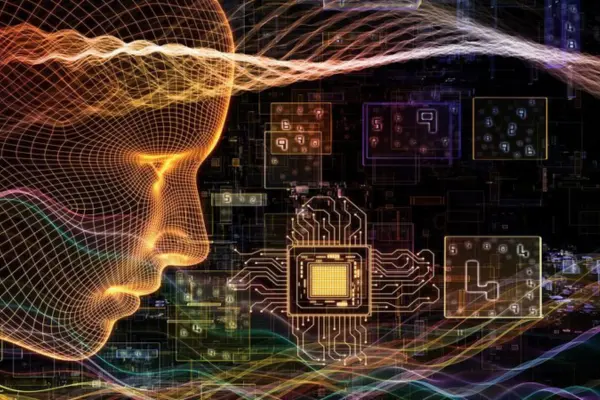Traditional computers use a central processing unit (CPU) to handle data from a separate memory unit. This setup has some problems. One big issue is that data moves slowly between the CPU and memory because it happens one step at a time. This slow data movement is called the “Von Neumann bottleneck,” which makes the computer work slower and use more energy.
Traditional computers also have trouble managing the huge amounts of data we have today. This makes it hard for them to perform well, especially with advanced tasks. In areas like machine learning, traditional computers can’t be as efficient or flexible as the human brain. Because they use silicon technology, which has its own limits.
These computers also face issues in high-performance and parallel computing. Because they focus too much on control. In artificial intelligence, traditional computers struggle to handle large amounts of data. Because they need a lot of computing power.
Traditional computers have many limitations. Especially in machine learning and artificial intelligence. Where they can’t compete with more advanced or specialized computers.
The Fundamentals of Quantum Computing
Classical bits and quantum bits (qubits) are basic units of information used in classical and quantum computing. Classical bits are simple and can be either a 0 or a 1, like flipping a light switch on or off. They are the building blocks of regular computers.
Qubits are different because they use the principles of quantum mechanics. They can be in a state of both 0 and 1 at the same time, which is called superposition. This means qubits can do many calculations at once, something classical bits can’t do.
The main difference between classical bits and qubits is how they store information. Classical bits can only be in one state at a time, either 0 or 1. But qubits can be in both states simultaneously, allowing them to process much more information at once. This helps quantum computers solve certain problems much faster than regular computers.
Another special thing about qubits is entanglement. When qubits are entangled, they become linked in a way that classical bits can’t. This means if you change the state of one entangled qubit, the state of the other qubit will change instantly, no matter how far apart they are. This unique property allows for things like quantum teleportation, where information is transferred using entangled qubits.
Quantum Computing vs. Classical Computing
Quantum computing is much more powerful than classical computing. Quantum computers use qubits, which can be in many states at once. This allows them to do many calculations at the same time and process lots of information very quickly.
Because of this, quantum computers can solve some problems much faster than regular computers. For example, special quantum algorithms, like Gaussian Boson Sampling, show how powerful quantum computers can be compared to classical ones.
Quantum computers can look at many possible solutions all at once. This means they can solve certain problems much faster and more efficiently than regular computers ever could.
| Feature | Classical Computing | Quantum Computing |
|---|---|---|
| Basic Unit | Bit (0 or 1) | Qubit (0, 1, or superposition of both) |
| Data Processing | Sequential | Parallel (through superposition) |
| Scalability | Limited by Moore’s Law | Exponential scaling potential |
| Problem-Solving | Deterministic algorithms | Probabilistic algorithms |
| Key Principle | Binary logic | Quantum mechanics (superposition and entanglement) |
| Current State | Mature technology | Emerging technology |
Classical computers use classical bits, which can only be either 0 or 1, unlike qubits that can be in multiple states at once. Quantum computers are expected to be much faster than classical ones, but there are still some problems to solve. One problem is that we don’t have enough qubits yet to fully use their power.
Even though quantum computers have a lot of potential, they still need help from classical computers for many tasks. This means that we can’t yet use quantum computers to their full advantage because of these challenges.
Conclusion
As we learn more about quantum computing. We see it’s not just a new kind of computer power but a big change that could help us solve problems and create new things. Even though we still have problems like fixing errors, keeping qubits stable, and making quantum computers bigger. We are making good progress.
Quantum computing could do things that regular computers can’t and help solve some of the hardest problems we face today. It could change things like cryptography (keeping information safe), making new medicines, and improving artificial intelligence.
As we keep learning about and investing in quantum computing, we need to think about what is right and fair. We should make sure everyone benefits from this new technology so that the future with quantum computers can help all people.
FAQs
What is quantum computing?
Quantum computing is a new type of computing that uses tiny particles called qubits to do many calculations at the same time, making it much faster than regular computers.
What are qubits?
Qubits are the basic units of information in quantum computers. Unlike regular bits that can be either 0 or 1, qubits can be both 0 and 1 at the same time.
Why is quantum computing important?
Quantum computing is important because it can solve very complex problems quickly, which can help in areas like medicine, security, and artificial intelligence.
What is cryptography and how can quantum computing help?
Cryptography is about keeping information safe. Quantum computing can create much stronger security methods to protect our data.
Will quantum computing replace regular computers?
Quantum computers won’t replace regular computers but will work alongside them to solve very difficult problems.
Why do we need to think about ethics with quantum computing?
We need to make sure that the benefits of quantum computing are shared fairly and that it is used in ways that are good for everyone.
How fast can quantum computers solve problems?
Quantum computers can solve some problems in seconds that would take regular computers millions of years.
What is superposition?
Superposition is when a qubit can be in both the 0 and 1 states at the same time, allowing for more powerful computing.
How long will it take for quantum computing to be common?
It might take many years for quantum computing to become common, but scientists are making progress every day.
Can kids study quantum computing?
Yes, kids who are interested can start learning about quantum computing now and maybe become the quantum scientists of the future!

